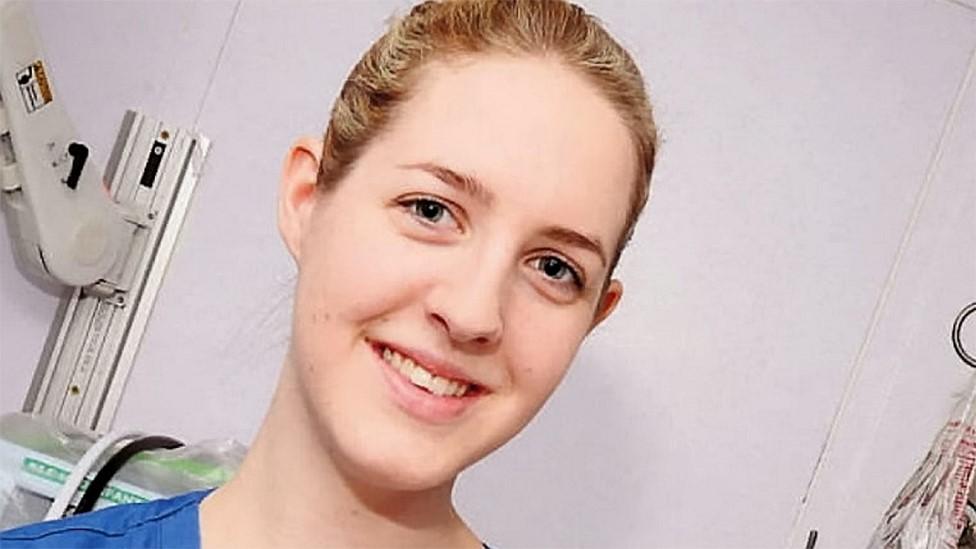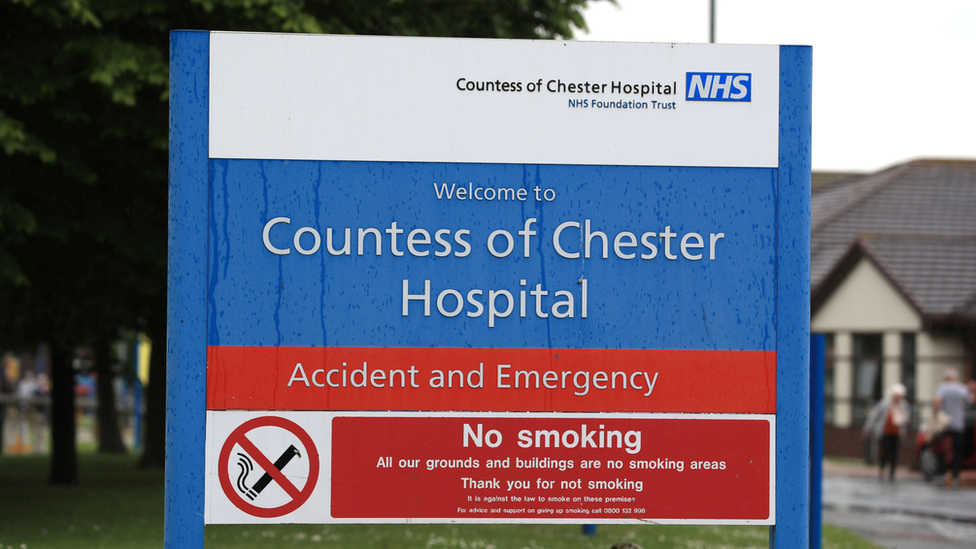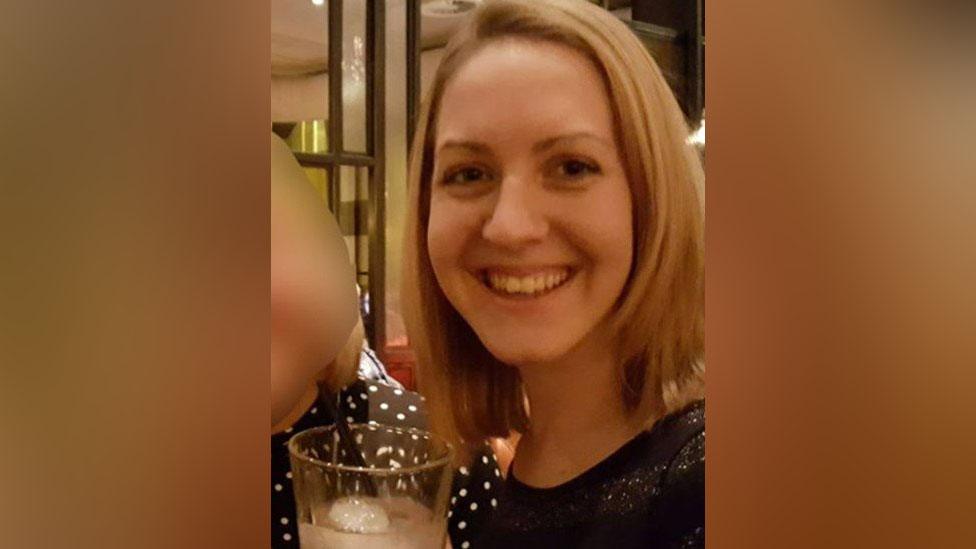Lucy Letby trial: Fluid and air forced into baby's stomach, jury told
- Published

Lucy Letby denies murdering and attempting to murder babies at the Countess of Chester Hospital
A premature baby boy collapsed and needed breathing support after fluid and air was "forced" into his stomach, a court has heard.
Nurse Lucy Letby is accused of attempting to murder Child Q on 25 June 2016 and murdering two triplets, Child O and P, on the previous two days.
She is accused of murdering seven babies and attempting to murder 10 others at the Countess of Chester Hospital between 2015 and 2016.
The 33-year-old denies all charges.
Manchester Crown Court has heard how Child Q, who was Ms Letby's final alleged victim, was "stable" on the evening before his collapse.
Jurors heard the infant deteriorated and needed breathing support shortly after 09:00 BST on 25 June.
The Crown said Ms Letby injected air and fluid into the boy's stomach via a nasogastric tube in an attempt to kill him.
Medical expert Dr Dewi Evans, who was asked to review the case by Cheshire Police in 2017, told jurors vomit found on Child Q on the morning of 25 June was evidence liquid had been given to him by someone.
He said: "Clearly there was enough fluid injected down his nasogastric tube into his stomach to make him vomit, he only would have vomited if he had quite a significant amount of fluid."
He agreed with prosecutors the fluid had been "forced" down the tube.
Dr Evans said the subsequent respiratory problems experienced by Child Q was likely caused by the fluid, which placed pressure on his diaphragm and prevented him from breathing normally.
"Once he vomited, it was nature's way of un-splinting the diaphragm and easier for the resuscitation to be successful".

The nurse is accused of carrying out the attacks at Countess of Chester Hospital
The court earlier heard from consultant paediatrician Dr John Gibbs, who told jurors how he demanded to know who was caring for Child Q after his collapse.
Dr Gibbs said that by late June 2016 there was a "heighted concern" about baby deaths at the hospital.
"I remember wanting to know who had been looking after [Child Q] at time he had desaturated," he said.
"I wouldn't normally want to know who was looking after patients.
"I was worried about what was happening on the unit," he added.
Dr Gibbs has previously told jurors between June 2015 and June 2016 Ms Letby's presence had been noted as a "common factor" in "unusual" baby collapses and deaths at the Countess of Chester Hopsital.
The consultant said the deaths of triplet brothers, Child O and P, on successive days in late June 2016 became a "tipping point" for his team.
Ben Myers KC, defending, earlier questioned a doctor, who cannot be named for legal reasons, about messages he sent to Ms Letby in late June 2016 in relation to the death of Child O.
The court has previously heard the boy was found to have an "impact" injury to his liver in a post-mortem examination that was akin to having been in a road traffic collision.
In Facebook messages to the nurse, originally of Hereford, he said that another doctor on the unit had told him she was "upset" and concerned that Child O's liver injury "may have been caused by her chest compressions".

Lucy Letby, 33, denies all charges
He told Ms Letby he spent 20 minutes "in a cubicle going over everything" with the doctor.
The doctor told Mr Myers it was a "busy time on unit" and "a lot of introspection" was occurring.
He said he wanted to "reassure" the doctor the correct CPR procedure had been followed, but when pressed by Mr Myers as to whether he could remember the CPR he said "I don't".
"I think I was managing the airway and at some point changed positions, I don't recall who was doing what. I was focusing on the task in hand," he said.
The trial continues.

Why not follow BBC North West on Facebook, external, Twitter, external and Instagram, external? You can also send story ideas to northwest.newsonline@bbc.co.uk, external
Related topics
- Published3 April 2023

- Published31 March 2023

- Published30 March 2023

- Published29 March 2023

- Published23 March 2023

- Published22 March 2023

- Published21 March 2023

- Published20 March 2023

- Published16 March 2023

- Published15 March 2023

- Published14 March 2023

- Published8 March 2023
